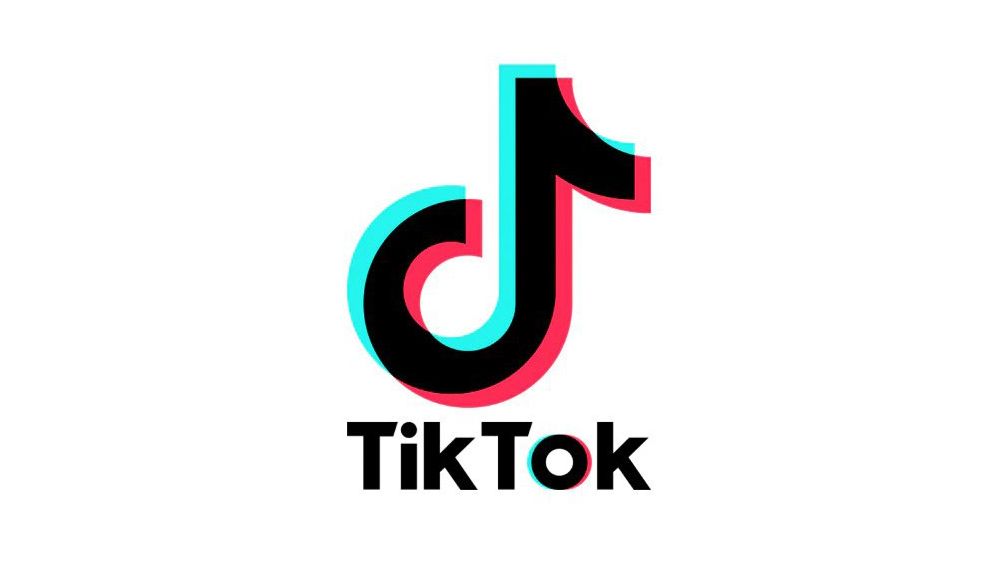Bora Kazi au Kazi Bora: Is the youth in Kenya prepared for the job market?
Kenya is facing a severe unemployment crisis, particularly among its youth, who make up a significant portion of the population. The youth unemployment rate stands at 17.7%, compared to an overall rate of 7.4%, with many young people underemployed or unable to find meaningful work. The situation has been worsened by the COVID-19 pandemic, which led to significant job losses, disproportionately affecting young people. This crisis poses challenges to economic stability and social cohesion, highlighting the urgent need for solutions to unlock the potential of Kenya’s youth.
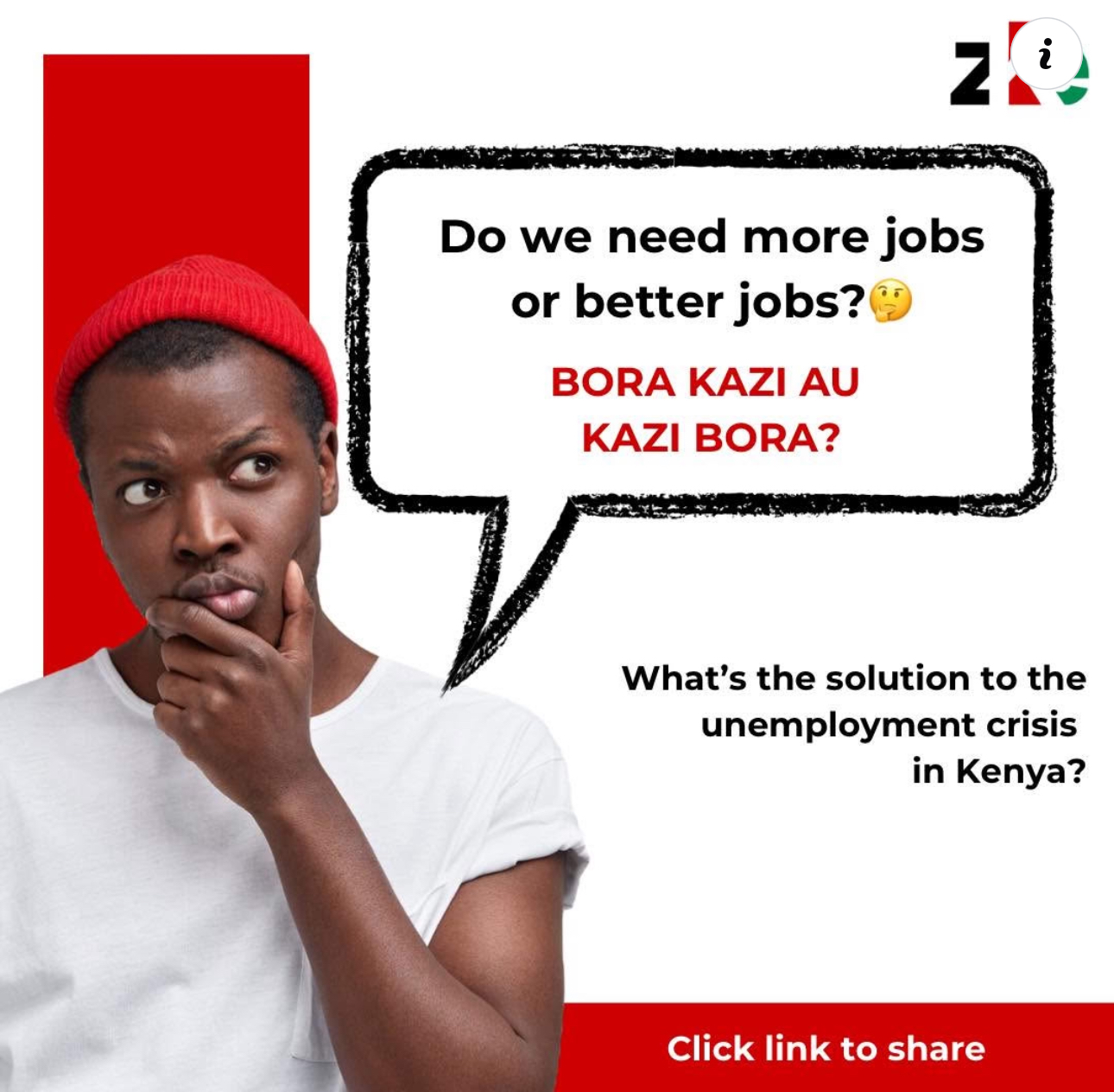
Kenya’s government faces several challenges in addressing youth unemployment:
- The growing youth population is making it harder to create enough jobs for everyone. 👥📈
- Many young people are not learning the skills needed for the jobs available in the market, leaving them underemployed. 🎓💼
- Young entrepreneurs find it difficult to get funding for their businesses because of strict loan requirements and lack of resources. 💵🚫
- Most jobs are in the informal sector, which doesn’t offer job security or benefits. 🛠️📉
- The government has limited funds to run large-scale programs that can create more jobs. 💰⚖️
- Even though there are policies to address unemployment, they are not always well executed or coordinated. 📝❌
We recognised that the voices of the youth was needed to shape this critical conversation! zKe conducted a series of consultations with the youth both offline (through public youth Barazas), on radio/ TV and on digital spaces including on zKe social media channels, on X spaces and using deliberative technologies such as Pol.is.
Youth Barazas
zKe conducted a series of in-person youth Barazas/ assemblies in five representative counties in Kenya, including Homabay, Nairobi, Nakuru, Kitui, and Mombasa. A total of 152 representative youths from these counties discussed the question on Tax Laws (Amendment) Bill 2024.
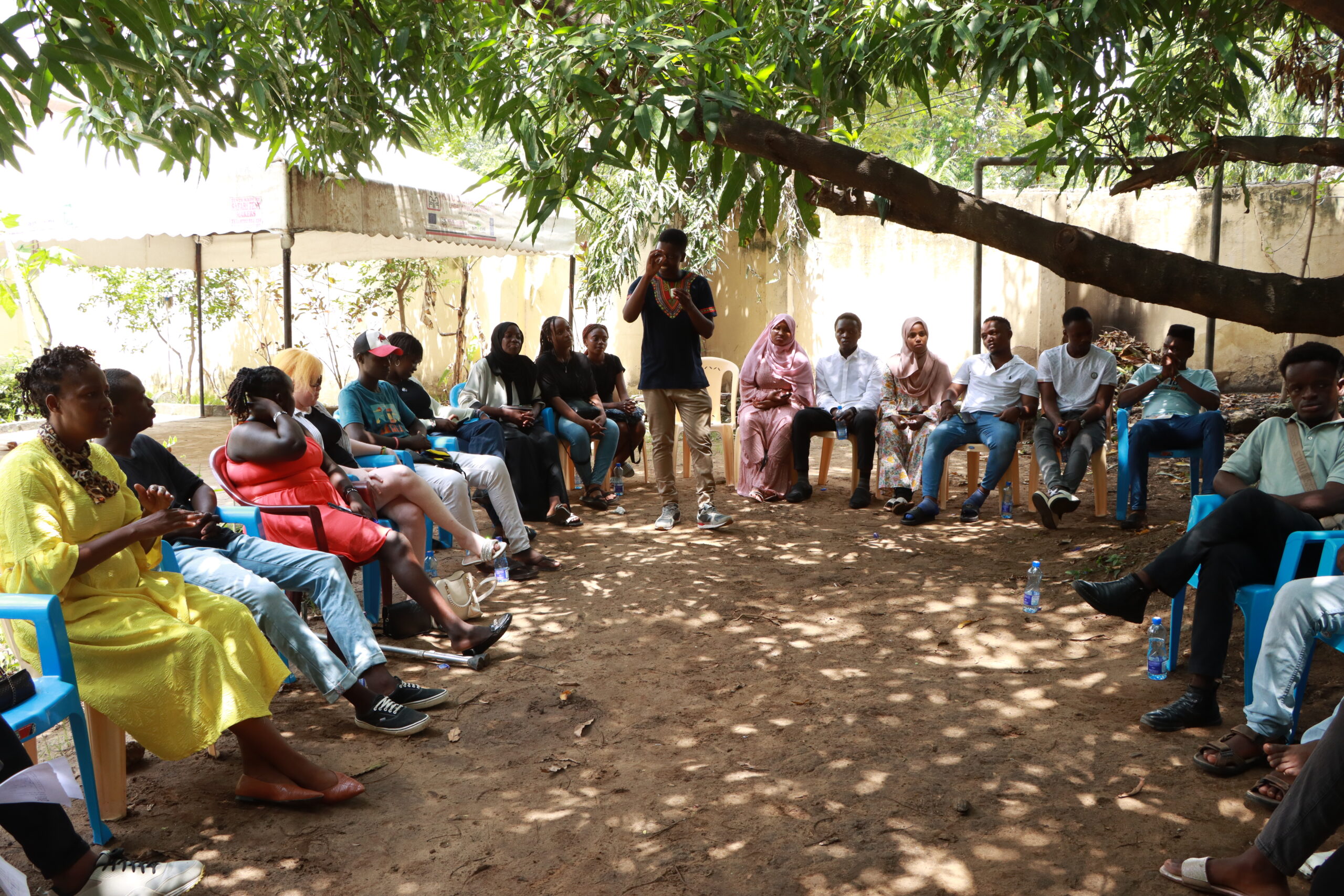
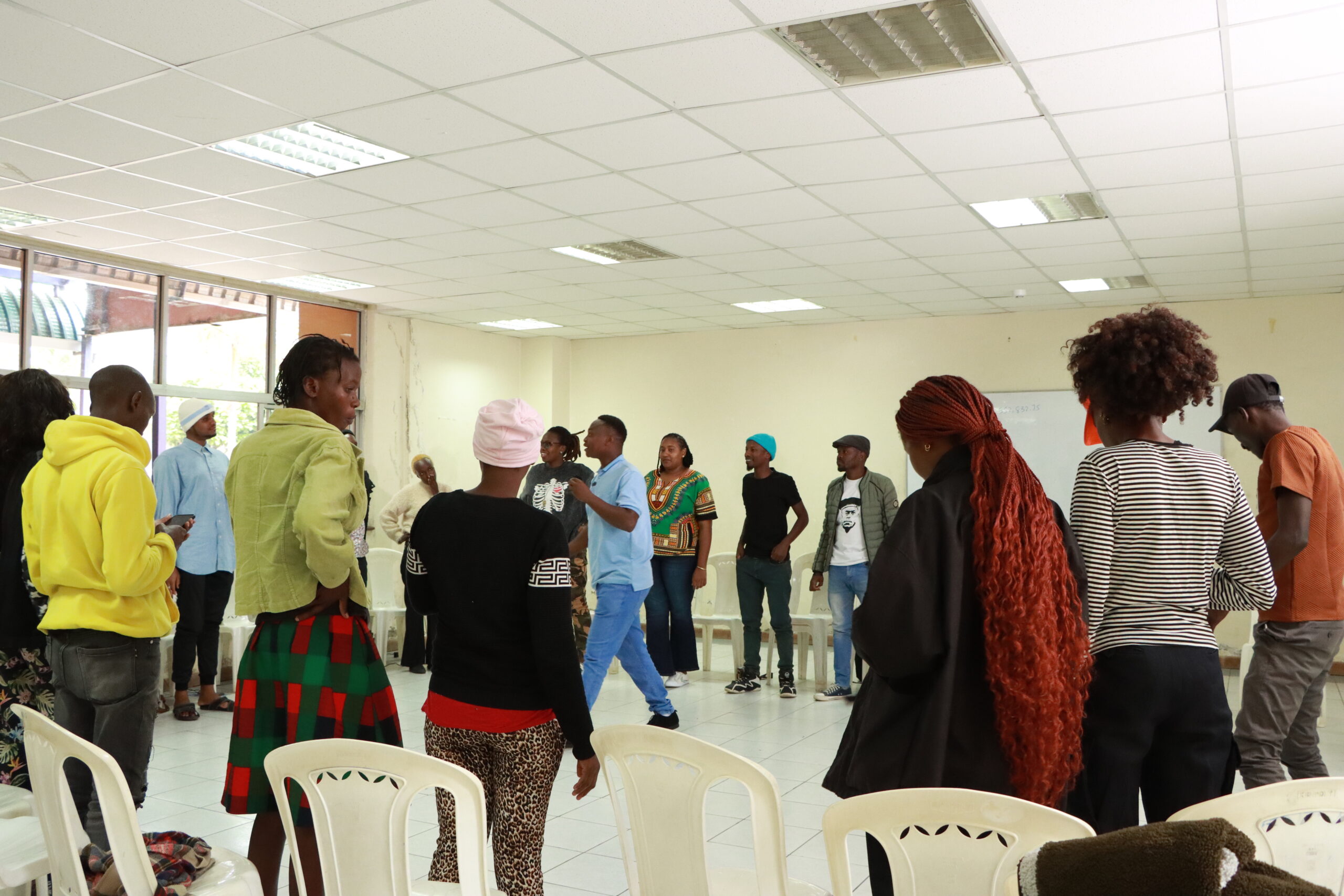
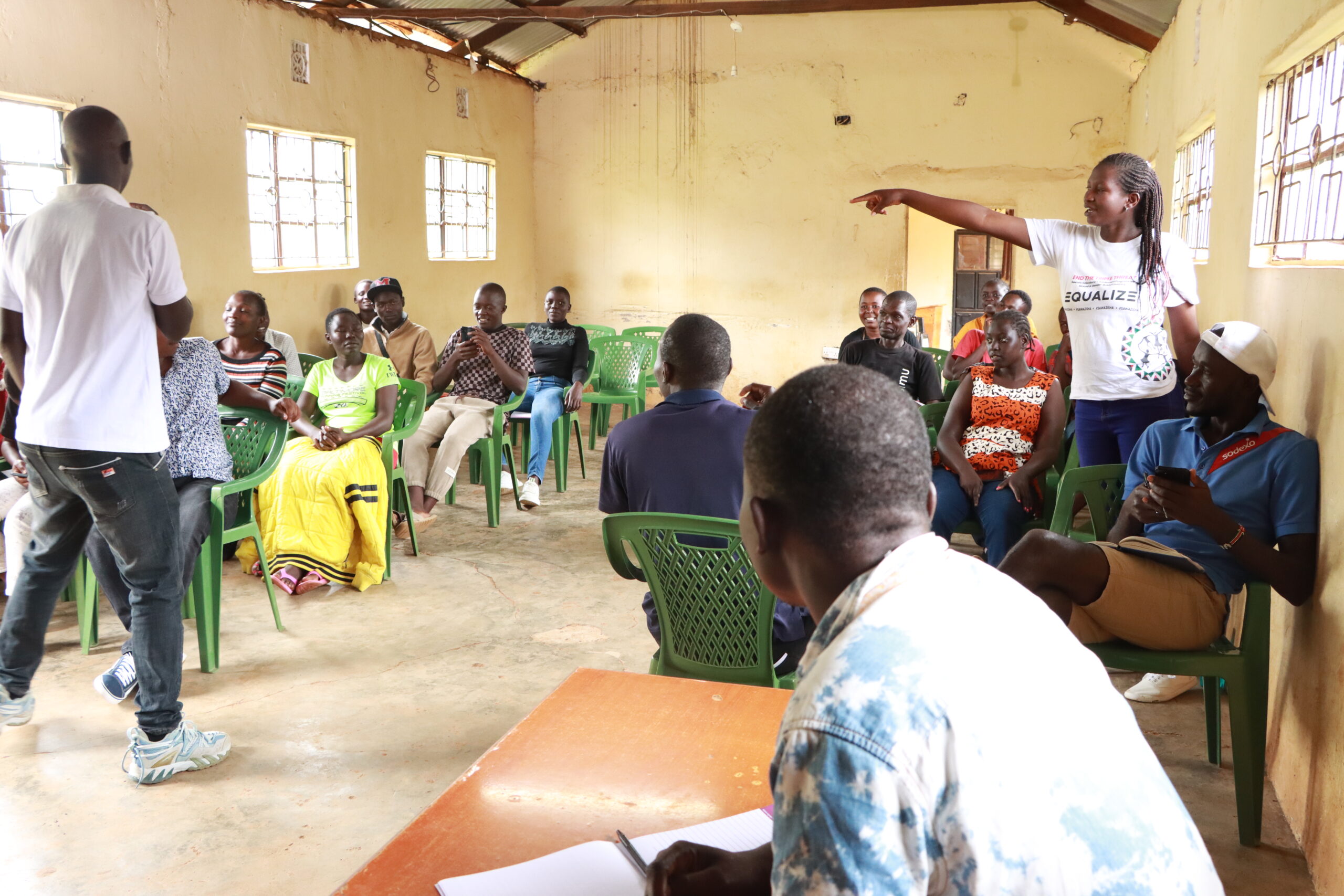
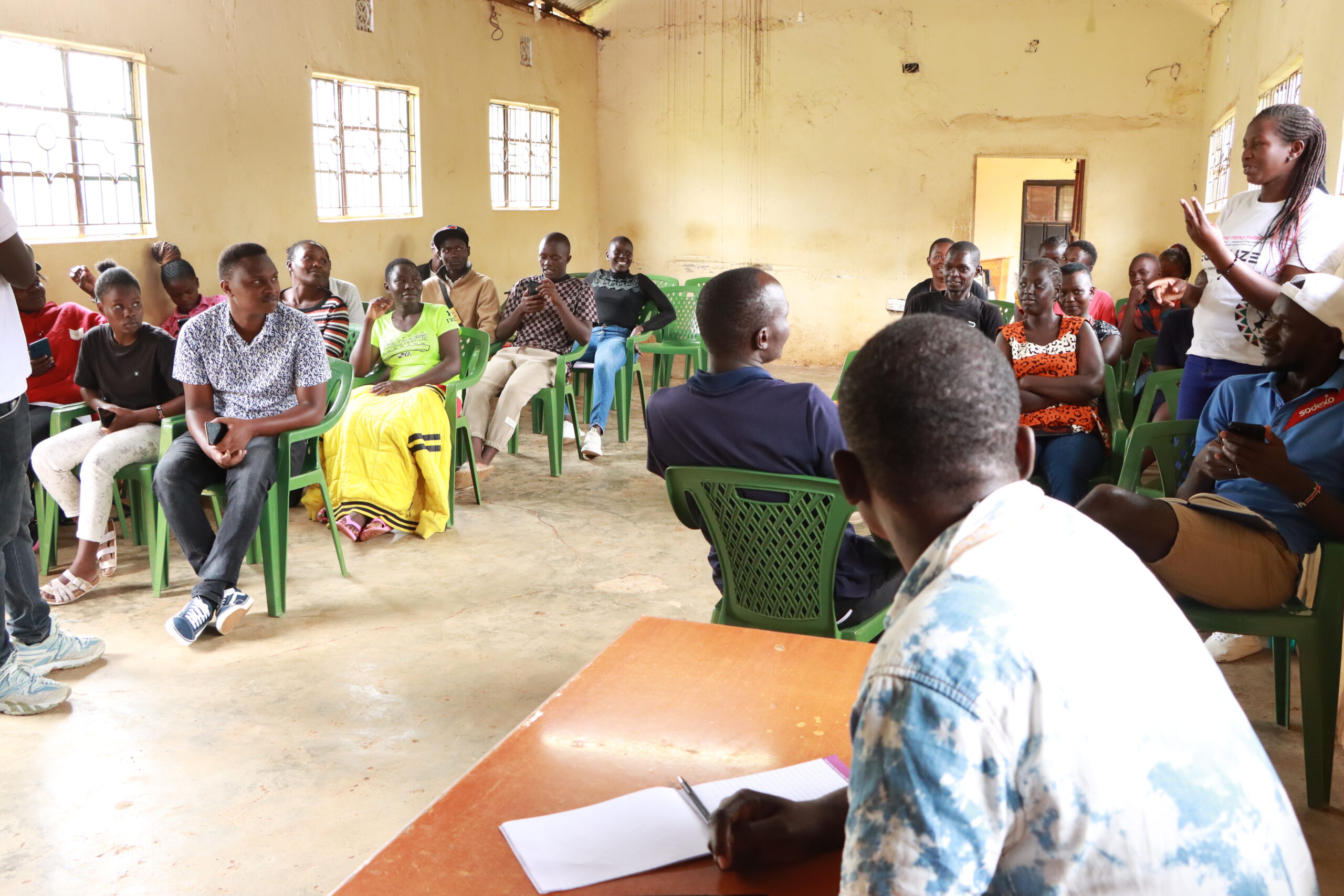
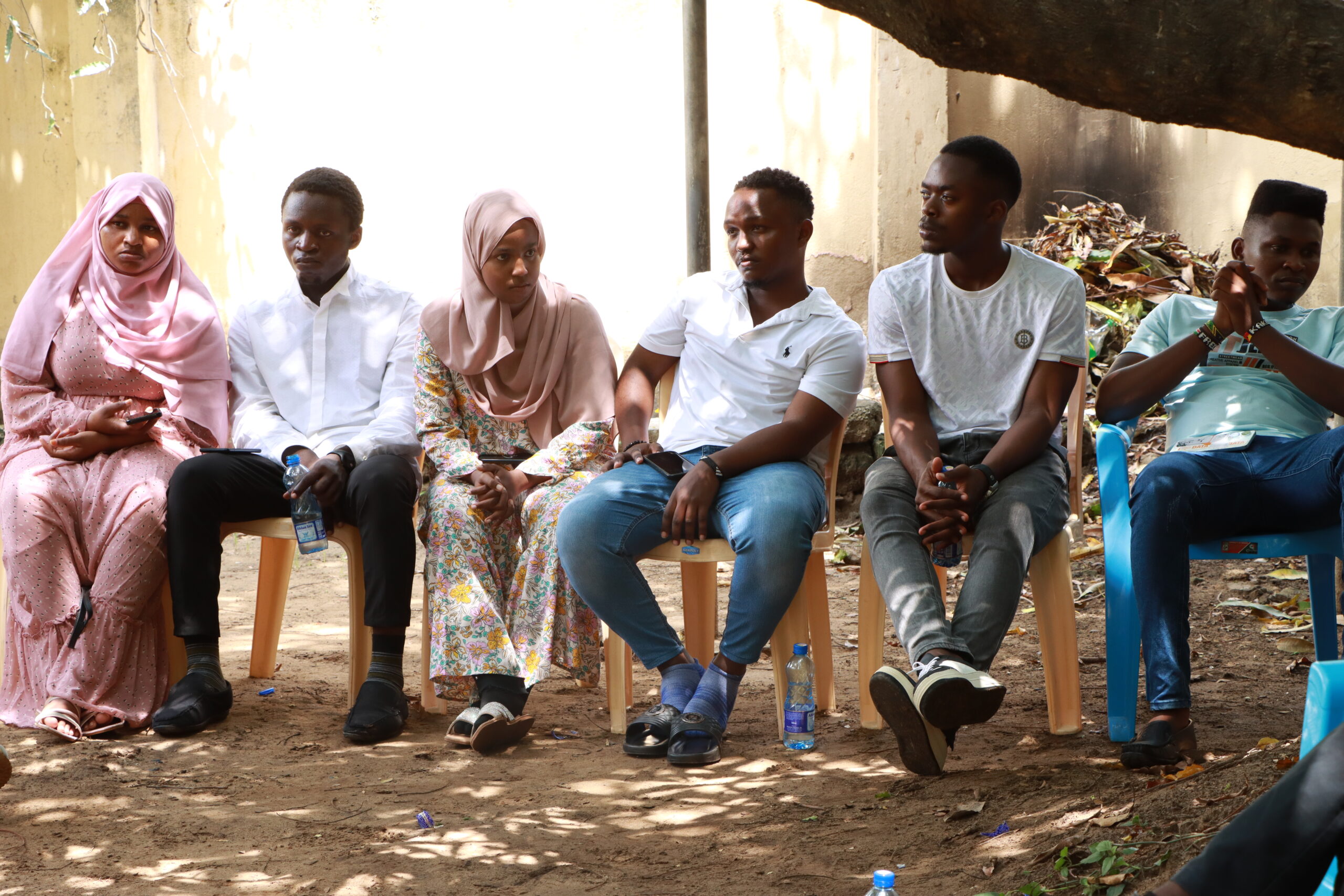
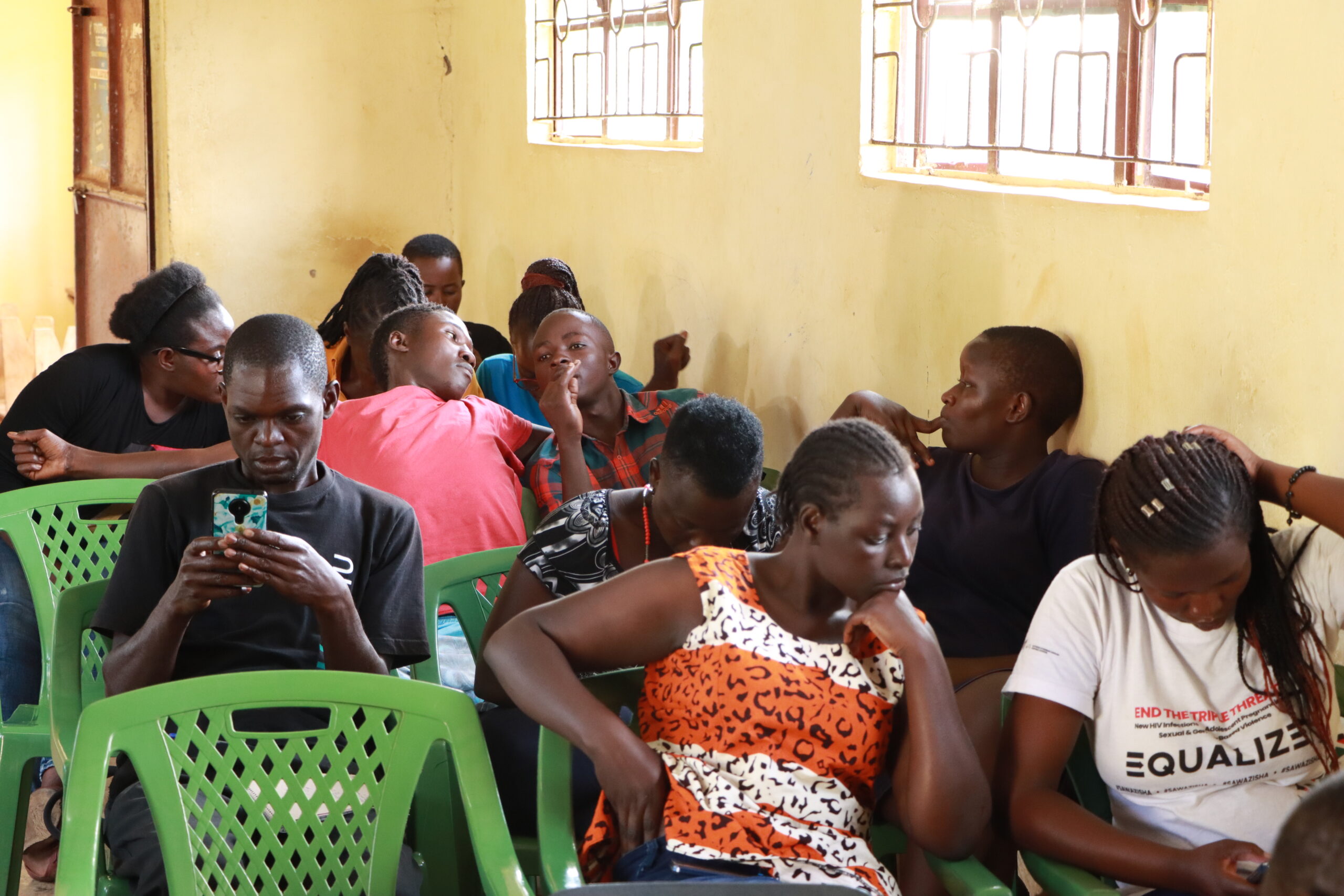
Digital Consultations




From the total of 56 participants, the majority, representing 66%, identified as young people belonging to Generation Z.

The results of the online conversation show us that the conversation didn’t get much traction and possibly shows disinterest from the youth in engaging on the topic.
Note: The pol.is platform allows us to identify both the statements that received the highest number of agreement or disagreement votes and the statements with the highest or lowest group informed consensus. In summary, group informed consensus is a measure of how favorably a statement is viewed by people who otherwise disagree with each other. Statements with high group informed consensus scores (we’ll call these “consensus statements”) are often those that bring everyone together across dividing lines; statements with low group informed consensus scores (we’ll call these “divisive statements”) are often those that are likely to be most divisive because they have strong agreement from one group and strong disagreement from another group. Please see the notes at the end for a more detailed definition of group informed consensus and how this differs from majority voting.
Most Consensual statements
The youth reached a 60% consensus highlighting the importance of creating dignified jobs that align with skills and passions, ensuring job security and fair employment practices, and addressing corruption, which deprives qualified individuals of opportunities, all of which are crucial to tackling the unemployment crisis in Kenya.
💡 The most consensual views in the conversation included:
- People should be able to do jobs that they love and are passionate about.
- Kazi bora. We deserve good jobs. Most Kenyans are prepared for the job market but corruption deprives us of opportunities to showcase that.
- Ideally, if there could be standards, body of ethics, employment done on rollout basis and not who knows who, then Kazi bora would work.
- KAZI Bora, stability, the high cost of living. Dignified jobs matching skills are important. job security, meet basic needs enable savings.
- Due to corruption unqualified workers get job leaving the qualified jobless.
Most divisive statements
The most divisive statements revolved around differing views on employment priorities, with some youth expressing a willingness to take any available job to make ends meet, while others emphasised the need for dignified, stable, and skill-matching jobs. These discussions highlight contrasting opinions on the balance between accepting survival jobs and striving for improved job quality and fairness in the employment market.




All the statements/ views can be accessed here.
X Space Conversation
zKe hosted a live conversation on X with the youth to …
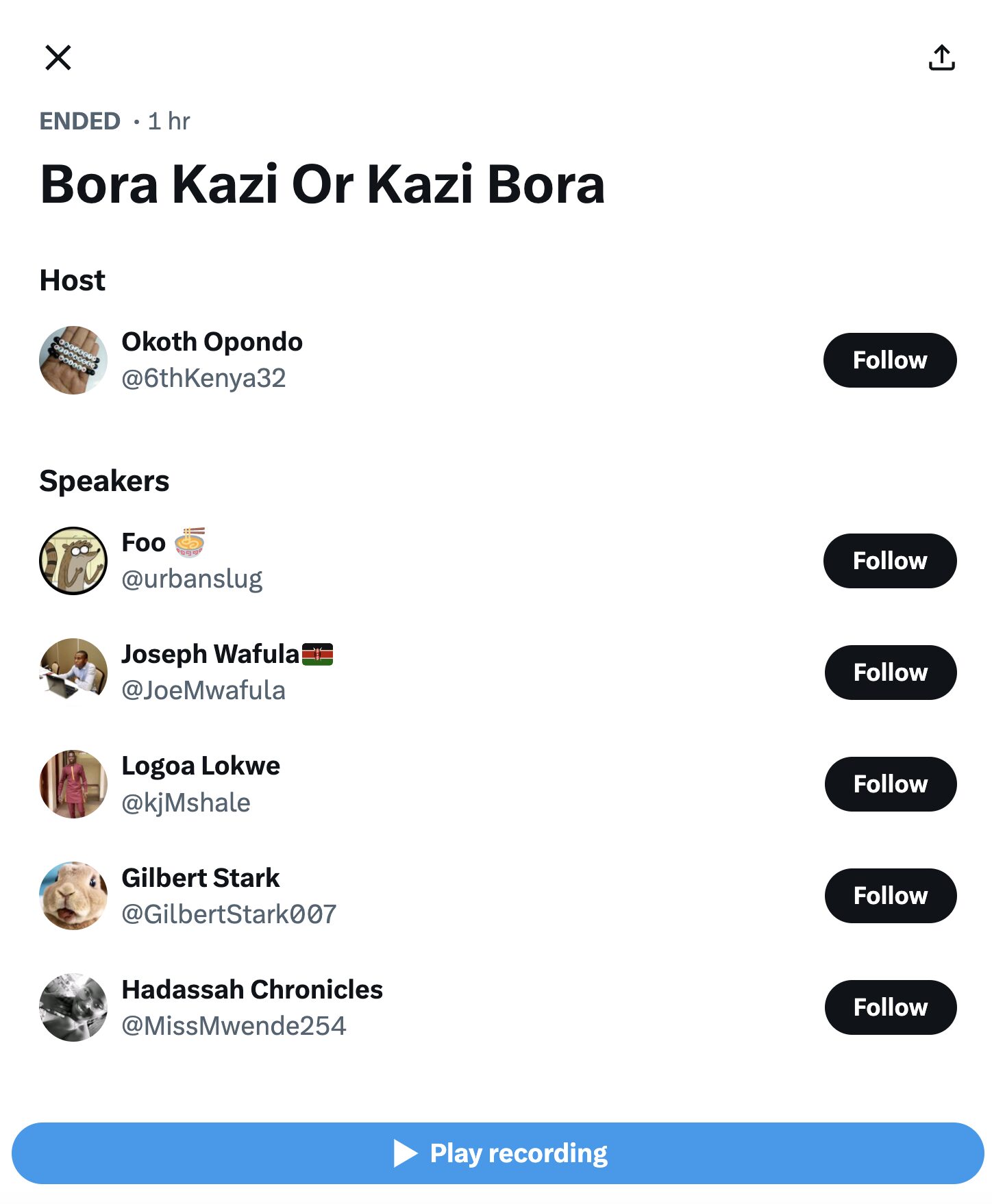
Social Media Engagement
Below are some of the engaged content from zKe on the Tax Laws (Amendment) Bill 2024 on different platforms:
